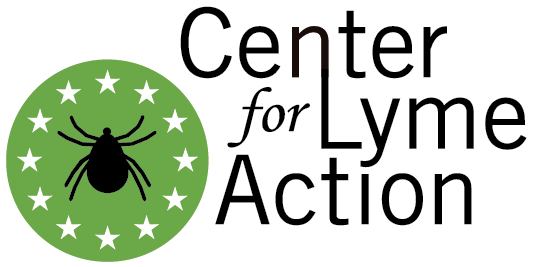Center for Lyme Action (CLA) and the National Alliance for PANS/PANDAS Action (NAPPA) are pleased to announce a collaboration to advance shared goals through the Infection Associated Neuropsychiatric Conditions Initiative (IANCI). The vision of IANCI is to increase federal funding for research into the biological underpinnings of infection-associated neuropsychiatric conditions and illnesses – especially vector-borne and infection-triggered chronic conditions such as Lyme disease, Bartonella, PANS and PANDAS. These illnesses involve immune and inflammatory responses to infection that affect the brain, producing debilitating somatic, neurological, and neuropsychiatric symptoms.
By working together, CLA and NAPPA will combine advocacy and community mobilization to drive federal recognition and investment in these conditions. Together, the organizations aim to ensure the federal government prioritizes funding for prevention, diagnostic innovation, improved therapeutics, and long-term care for the millions of Americans impacted by these diseases.
Building on Proven Impact
This collaboration builds on CLA’s extraordinary track record of securing federal resources for Lyme and tickborne disease research and programs. Since 2019, CLA and its nearly 10,000 advocates across the U.S. have helped increase federal funding by over $500 million. NAPPA brings deep connections within the PANS/PANDAS community, a strong patient and family advocacy base across 25+ states, and proven success in achieving federal reporting obligations related to PANS and PANDAS. The two organizations will unify efforts to elevate infection-associated neuropsychiatric conditions to the forefront of federal health policy and research agendas.
Why it Matters
Emerging research demonstrates that infections – including Lyme disease, Bartonella, PANS and PANDAS and others – can trigger serious neuropsychiatric symptoms such as anxiety, depression, obsessive-compulsive behaviors, and cognitive dysfunction, along with significant physical and neurological symptoms. Immune-mediated and inflammatory processes are increasingly recognized as key mechanisms driving these post-infectious neuropsychiatric sequelae. Yet, too many children and adults go undiagnosed or misdiagnosed, suffering for years before proper recognition and treatment. Even after diagnosis, many still face a lack of effective, accessible care. Critical federal investment is needed to develop accurate diagnostics, effective treatments, and care pathways for patients and families across America.
Key Goals
- Increase Federal Funding: Advocate for sustained and expanded federal research funding into infection-associated neuropsychiatric conditions.
- Advance Policy Inclusion: Seek appropriations language explicitly including Lyme disease, Bartonella, PANS, and PANDAS in federal research and health programs.
- Raise Awareness: Educate Congress and the public on the neuropsychiatric impacts of infection-associated diseases through joint events, briefings and campaigns.
- Support Legislative Progress: Advance the 2025 reauthorization of the Kay Hagan Tick Act and related legislation to improve prevention, diagnostics, treatment, and long-term care.
- Build a National Coalition: Unite patient voices, advocacy groups, and researchers to strengthen the case for federal investment and lasting policy solutions.
Join Us
Together, we can accelerate recognition, research, and recovery for millions living with infection-associated neuropsychiatric conditions. Fill out this form to stay tuned for updates and opportunities to engage in this important work.
About Center for Lyme Action and National Alliance for PANS/PANDAS Action
Center for Lyme Action (CLA) is the leading advocacy organization dedicated to growing federal funding and advancing policy solutions for Lyme and tickborne diseases. The National Alliance for PANS/PANDAS Action (NAPPA) is the leading advocacy organization focused on increasing federal funding and policy response for Pediatric Autoimmune Neuropsychiatric Syndrome (PANS) and Pediatric Autoimmune Neuropsychiatric Disorder Associated with Streptococcal Infections (PANDAS).

